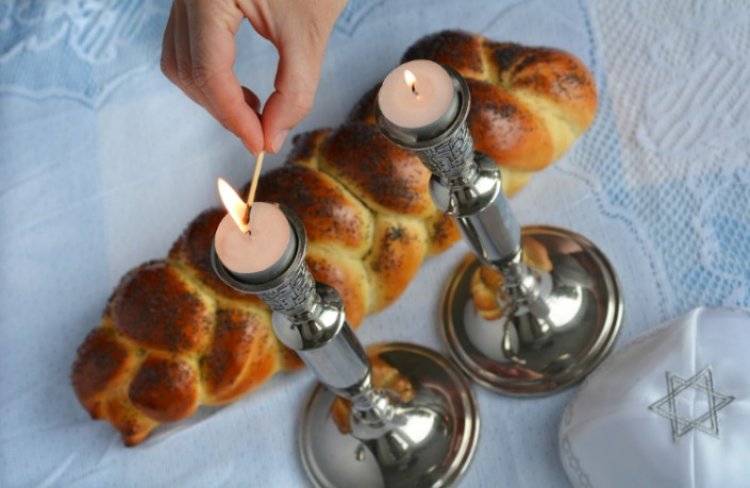The "Conditions" Worth Making Once a Year
What conditions are worth establishing once a year, and why exactly are these conditions beneficial?
 (Photo: shutterstock)
(Photo: shutterstock)I saw in the wonderful newsletter "HaIchud" several important things that should be publicized, so I decided to share them in this column with some additions.
There are things that are forbidden to do on Shabbat, but if one makes a "condition" once a year, it can solve the problem. Here are some examples:
Recite the tithes declaration once a year in future tense
Say the tithes declaration once a year in future tense: "One hundredth that I will separate in the future will be untithed produce, and the remainder beyond one hundredth that I will separate will be the great tithe on the northern side for everything. That one hundredth I mentioned that will remain untithed produce along with the appropriate remaining amount on the northern side of the fruits will be the first tithe. That one hundredth I stipulated as the first tithe will be the tithe offering for all, and the second tithe will be on the southern side of the fruits, and it and its fifth will be redeemed on a quarter-shekel coin that I have designated for redeeming the second tithe, and if poor man's tithe is required, it will be on the southern side of the fruits."
The reason - because it is forbidden to separate tithes on Shabbat and holidays. But if one recites the declaration before Shabbat in conditional language, if it happens that one forgets to separate tithes before Shabbat, one can separate them on Shabbat and recite the formula with the blessing (Ketziyrat HaSadeh chapter 17, section 3).
A woman should make a condition once a year that she is not accepting Shabbat when lighting candles
The condition formula - "I stipulate that I do not wish to accept Shabbat with the candle lighting but rather at the actual entrance of Shabbat."
The reason - Ashkenazi Jews have the custom of accepting Shabbat when lighting candles. And even for Sephardic Jews, who hold that a woman does not accept Shabbat with candle lighting - nevertheless, since there are those who disagree, it is good to stipulate once a year that she does not wish to accept Shabbat with the candle lighting but rather at the time of Shabbat's entrance, and this condition is effective for both Ashkenazim and Sephardim (Yalkut Yosef siman 263, section 50).
 (Photo: shutterstock)
(Photo: shutterstock)It is good to make a condition allowing the moving of electrical switches and Shabbat clock pins on Shabbat
The condition formula - "I stipulate that my intention is to use electrical switches and Shabbat clock pins on Shabbat."
The reason - because when moving an electrical switch or the pins of a timer, it is considered partial handling, even though the switch is attached to the building, as is the Shabbat clock. But one moves the pins and the switch, and this is considered partial handling, which is subject to disagreement among the authorities whether it is permitted or forbidden, therefore it is good to make a condition once a year (Yalkut Yosef Shabbat 4, p. 435).
Note: It is forbidden to turn on an electrical switch on Shabbat under any circumstances. However, there are cases where it is permitted to schedule activation through a Shabbat clock for the needs of a sick person and the like, and this should be reviewed in the book Halachot Olam (Part 4, p. 72).
If one wears both Rashi and Rabbeinu Tam tefillin, it is good to make a condition once a year
The condition formula - "I stipulate that whichever tefillin are according to the law, I fulfill my obligation with them and the rest are just straps, and if both are true, then I intend to fulfill my obligation with both."
The reason - Rashi and Rabbeinu Tam disagreed about the order of the passages placed in tefillin, and the Shulchan Aruch rules according to Rashi's opinion. A God-fearing person will also put on tefillin according to Rabbeinu Tam's opinion. Therefore, it is appropriate to make this condition once a year (Halachot Olam Part 1, p. 201, Or L'Tzion Part 2, chapter 3, law 8).
 (Photo: shutterstock)
(Photo: shutterstock)It is good to make a condition once a year regarding food blessings
The condition formula - "I stipulate that when I bless 'Borei Pri Ha'etz', 'Ha'adama', 'Mezonot', 'Shehakol', I intend to exempt all of that type that is in the house, both the important and the beloved."
The reason - Usually when a person blesses 'Borei Pri Ha'etz' on the fruit before him, and wants to eat more from other fruits in the house, one does not repeat the blessing again, out of doubt, as explained in the Shulchan Aruch (siman 206, section 5). However, if the fruit is not before him, and later they bring a fruit from the seven species or a more beloved fruit, one must bless again. But if one made a condition once a year that one intends to exempt everything of that type in the house, one does not need to bless again (Halachot Mo'ed p. 112).
It is customary to make a condition on Erev Rosh Hashanah for all things done without saying "without a vow"
Every year, on the eve of Rosh Hashanah, we customarily make a condition during the annulment of vows for all things we might forget and not say "without a vow," that we intend everything to be without a vow. As explained in the Shulchan Aruch HaRav siman 619, section 3.
For those who regularly light Shabbat candles on the Shabbat table
If one lights candlesticks on the table on Shabbat and wants to move the menorah after the candles have gone out, one should make a condition once a year.
The condition formula "I stipulate regarding these candles that I may move them after they go out."
The reason - Although a burning candle makes the menorah muktzeh due to the prohibition of lighting the candle, nevertheless if one made a condition once a year - it is effective, as explained in the Shulchan Aruch siman 279, section 4, and Zayit Ra'anan (small section 8).
Important note: These conditions should be made on a weekday, not on Shabbat

